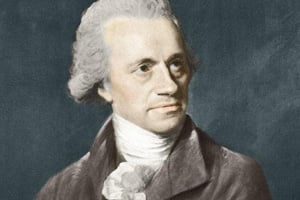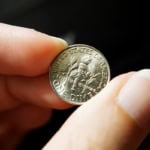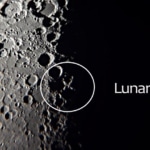The Man Who Discovered Uranus
March 13 marks the anniversary of the discovery of Uranus. Learn about the man responsible for expanding our understanding of our Solar System.

March 13 marks the anniversary of the discovery of Uranus (pronounced “UR-a-nus,” not “ur-A-nus”), the seventh planet in our Solar System, and the first to be discovered in the modern age. The first five planets, other than Earth, are easily visible to the naked eye and were known in antiquity. While some astronomers had noticed Uranus prior to its official discovery in 1781, it was so distant, and so slow moving, that it never occurred to anyone that it might be a planet. That all changed when British astronomer William Herschel entered the scene in the 18th Century.
Herschel was born in Germany in 1738, but emigrated to England at the age of 19, and spent the rest of his days there. His early work in astronomy was dedicated to finding binary star systems. It was during this research that he happened upon a strange non-stellar disk that he later found to be moving. Herschel initially thought the object was a comet, but it seemed to be moving too slowly for that. He and other astronomers of his era eventually agreed that it was a planet located out beyond the orbit of Saturn.
Herschel wanted to name the planet Georgium sidus, the “Georgian star,” after King George III, but the name was widely unpopular outside of England. Elsewhere, it was known simply as “Herschel,” until the name Uranus was finally selected, in keeping with the tradition of naming planets after mythological gods. After his discovery, Herschel was appointed as the King’s Astronomer, and received a number of important awards.
Beyond just the discovery of Uranus, though, Hershel was an industrious astronomer. He also discovered Uranus’ two moons, two moons of Saturn, and infrared radiation, confirmed that the polar ice caps on Mars grow and shrink with the planet’s seasons, cataloged more than 2,400 deep sky objects, coined the word “asteroid,” and theorized that our Solar System moves through space. He was also an accomplished biologist, notable for discovering that coral was an animal, not a plant, as was originally believed. On top of all of that, he was a talented musician and prolific composer. He played the cello, harpsichord, oboe, and organ, and composed two-dozen symphonies and many more concertos.
So, the next time you’re staring up into the night sky, take a moment to reflect on the remarkable jack-of-all-trades who so expanded our understanding of our Solar System and our Universe.

Jaime McLeod
Jaime McLeod is a longtime journalist who has written for a wide variety of newspapers, magazines, and websites, including MTV.com. She enjoys the outdoors, growing and eating organic food, and is interested in all aspects of natural wellness.





